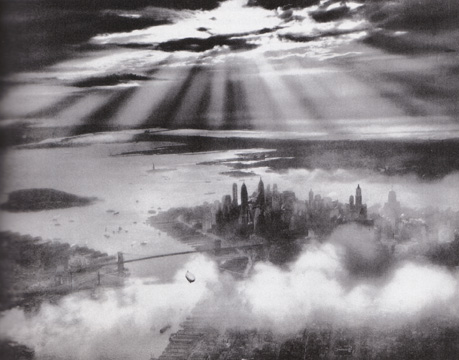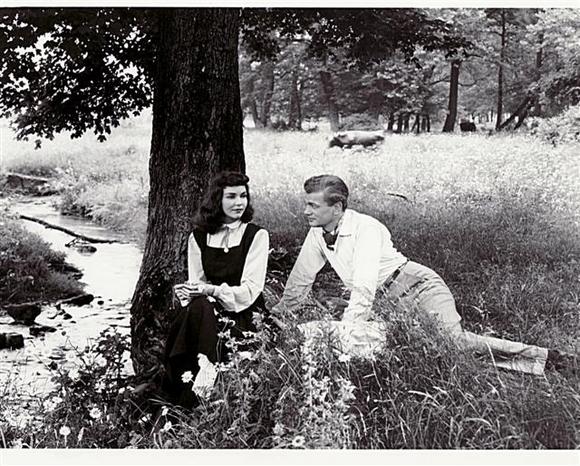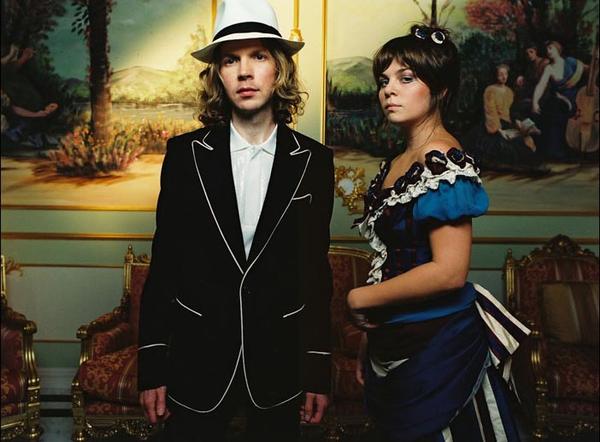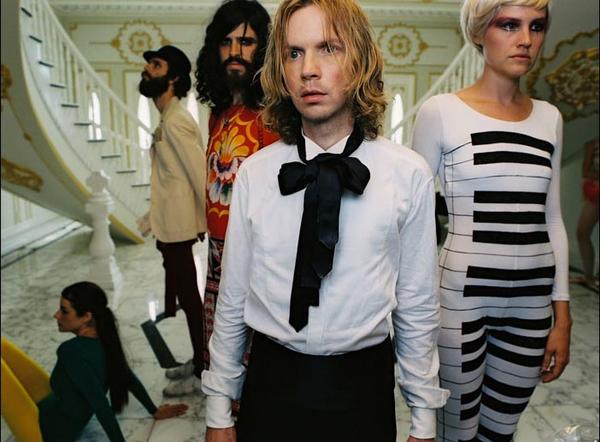
The Gloom Over New York
by ELEANOR MORROW
Portrait of Jennie is this weird movie starring Joseph Cotten that I haven't been able to fully remove from my brain. I first saw it when I was little, and it became the center of all my wants and desires. Let me tell you why exactly that should be.

Portrait is about a mediocre artist who paints still lifes and can barely sell anything. His muse appears to him one night in Central Park as a prepubescent girl. Like any opportunistic pedophile, he's eager to talk to her about her parents and her boyfriend. Always he suspects she's simply humoring an old man.
Jennie appears and disappears to him. He researches her background and discovers she's deceased and their flirtations are actually hauntings. This bowls him over with erotic desire. Can you understand why I was confused this was a film I was allowed to see when I was only eleven?

I missed then what I don't now — the pristine visions of New York, the idea of art in any corner, no matter how dank or destitute.

Portrait was directed by William Dieterle, a German actor in his younger days who always wore a white hat and gloves on the set. The film's producer was David Selznick, who originally wanted Vivien Leigh in the role of Jennie. Shirley Temple was even considered, for she could film her scenes over a number of years so as to appear older.

Jennifer Jones took the role of the dead young girl instead, and her excitability and friendliness with her body are unusual for a nun. Her face shimmers to ensure you never get a straight look at any part of it. Eager to involve this starving artist into her maudlin dance with death, she forces him to believe that he can save her from the New England tidal wave (?!) that took out her boat one salty evening.
It's never explained why exactly a nun would take a boat out solo during the worst storm of the year, but it doesn't need to be. Really she is doing nothing more than luring him to his own death.

Contrast this with my literary heroines of those days — Pollyanna and Nancy Drew, of course — and you can see why this disturbing vision of a lost soul pulling her lover into hell enraptured me so. For the first time I didn't feel empathetic towards characters I watched onscreen. I merely emanated a glowing pity.

Because this story hinged on the plausible denial of man-girl love, the Jew from Pittsburgh Selznick fired five writers who tried to adapt this "story" into a feature. Selznick himself was so taken by Jones' portrait that Cotten paints in the film that it hung on his wall until he died. Perhaps this reminded him that there was no such thing as a perfect object.
 When Cotten's character goes up the coast to find the place where his not-so-Eric-Bana-esque time travelling love perished in the water, the film's black and white diegesis melts into salty green. It's a shocking transition — who knew that color could exist in a world of blacks and greys? (Like Oz, this underworld metes out its pecularities regularly.)
When Cotten's character goes up the coast to find the place where his not-so-Eric-Bana-esque time travelling love perished in the water, the film's black and white diegesis melts into salty green. It's a shocking transition — who knew that color could exist in a world of blacks and greys? (Like Oz, this underworld metes out its pecularities regularly.)
Like Dorothy, when Cotton wakes, his friends are there. She is his lover, too, in spirit. She owns a gallery destined to make his loving portrait real art. It's a good thing you told us where you were going, they say. It's the only thing that saved you.

Portrait of Jennie is a subtle suggestion that it's okay to tell lies, or else it was an explicit instruction to pursue the fantastic, what others found unbelievable. Such fancies put Mr. Dieterle on the Hollywood blacklist, even though he made one of the finest prewar films, Blockade. The pursuit of the fantastic also managed to kill Portrait of Jennie's cinematographer, Joseph H. August. For the film, he was nominated for a posthumous Academy Award, and rightly so.

His visions of the world are dark, never giving away their full breadth, like a pent-up glimpse of the underworld. We move among them like ants, and even as a girl, I was sure that wasn't all they were.
Eleanor Morrow is the senior contributor to This Recording. She tumbls here.

"Femme Fatale" — Beck (mp3) (Velvet Underground cover)
"Sunday Morning" — Beck (mp3) (Velvet Underground cover)
"Waiting for My Man" — Beck (mp3) (Velvet Underground cover)

The Very Best of Eleanor Morrow on This Recording

Destroying Harry Potter from the inside...

A spirit rose and fell...

The aliens of District 9...

The inspired joys of Don Draper...

She went into a lonely place...
...and rode the perilous turns of Thieves' Highway.